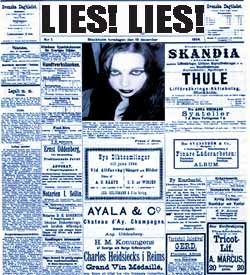Most consumer oriented law practices have a big problem. Lawyers who practice family law, bankruptcy, criminal defense, estate planning, personal injury, real estate, and other areas, have a preponderance of “one time” clients. Once the initial case or engagement is completed, the attorney gets no additional revenue, or at best, very little.
The problem is worsening. It costs more to bring in a new client today, and overhead and manpower expenses to service those clients are also higher. But clients aren’t willing to pay more, and they don’t have to. With more lawyers competing for the same clients, clients have more options.
I just spoke to an attorney who is spending $13,000 a month on yellow pages. The good news is that her ads bring in a lot of new clients. The bad news is that she loses money on every one.
The solution to this problem is for attorneys to develop their “back end”–services and other profitable initiatives they can offer their clients after the initial engagement.
In any business, most of the profits are made on the back end. There is a cost to acquire a new customer, and while it is hoped that this can be done at a profit, it’s not required. So long as the business can make enough profit after the initial sale, if the back end is big enough, most businesses are willing to lose money on the front end.
How can an attorney develop a back end?
Some attorneys are branching out into new practice areas. So the bankruptcy lawyer who sees a downturn in new clients starts offering family law or estate planning services. The problem with this is that it makes it much harder to get referrals from family law and estate planning attorneys with whom you are now competing. It’s also more difficult to market a general practice than a specialized one.
Instead of taking on new practice areas, here are two things an attorney can do to develop a back end:
- Expand and systematize referrals. Focus on getting more referrals, better referrals, and more frequent referrals from your clients. In this way, each client you bring in on the front end represents more profits on the back end. If you spend $1000 to bring in a new client who pays you $1000 on the front end, but you earn an average of $3000 from their back-end referrals, you can afford to bring in as many “break even” clients as possible. You can even lose money on the front end.
- Market the services of other lawyers to your clients. Instead of you taking on a new practice area, associate with other attorneys who are specialists in those areas and offer their services to your clients in return for a share of the fees (if ethically permissible) or in exchange for marketing your services to their clients. (You aren’t limited to working with other attorneys; you can also market the services of other professionals and businesses.)
A key number every attorney must know is the “lifetime value” of a new client. This includes the value of their repeat business, their referrals, and other revenue derived as a result of having them on your list. Take some time to determine this number and then work on increasing it.
















